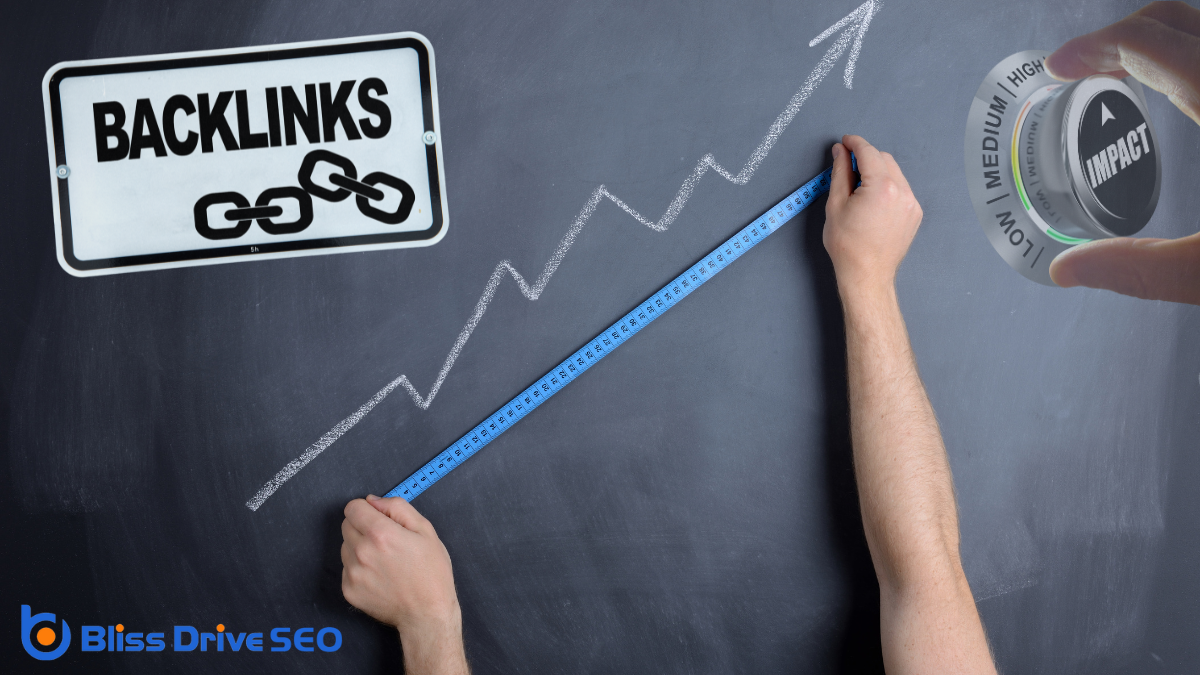Digital Marketing Services
Learn More About Us

You're probably wondering whether Google still relies on backlinksLinks from other websites pointing to your website, crucial for SEO. to rank websites. While Google's algorithm is a complex and evolving entity, backlinks remain a significant signal of a site's authority and relevance. High-quality links from reputable sites can enhance your site's visibility and credibility. However, it's not just about accumulating links; the quality matters more than ever. So, how exactly does Google weigh these backlinks in its assessment of your site, and what strategies should you consider to optimize your link profile? There's much more to uncover about Google's evolving stance on backlinks.
When delving into Google's algorithm, understanding how this intricate system determines which web pages appear in your search results is essential. You might wonder how Google decides one page deserves a top spot over another. At its core, Google's algorithm evaluates numerous factors to make sure you get the most relevant and useful results.
It's not just about keywordsWords or phrases that users type into search engines to find information. anymore; the system has evolved to take into account the context, user intent, and even the freshness of content.
You should know that Google's algorithm uses advanced techniques like semantic search and machine learningA subset of artificial intelligence where computers use data to learn and make decisions.. These allow it to interpret the meaning behind your queries and deliver results that better match what you're looking for. It's not just about matching words; it's about understanding what you really intend.
Moreover, Google constantly updates its algorithm, with major updates like Panda, Penguin, and RankBrainA machine learning component of Google's algorithm that helps interpret search queries. shaping the landscape. These updates aim to enhance the quality of search results by prioritizing high-quality, authoritative content while minimizing spamUnsolicited and irrelevant emails sent to a large number of recipients..
As a user, it's important to stay informed about these changes, as they can considerably impact how information is ranked and presented to you during your search experience.

You've likely heard that backlinks play a significant role in SEO, but it's important to focus on their quality rather than just quantity.
High-quality backlinks from reputable sites can boost your site's credibility and visibility in search results.
On the other hand, too many low-quality links might harm your rankings more than help.
Backlinks are important for SEO because they serve as endorsements for your site's credibility and authority. When other websites link to your content, it signals to search engines like Google that your site is trustworthy and valuable. This, in turn, can boost your site's ranking in search results, making it more visible to users seeking the information or services you offerThe specific product or service being promoted by affiliates.. Understanding the significance of backlinks in SEO is vital to effectively leveraging them for your online presence.
Here's why backlinks matter to your SEO strategy:
While understanding the importance of backlinks is key, not all backlinks are created equal. When you're building your website's backlink profile, you might wonder whether it's better to focus on quality or quantity. The truth? Quality trumps quantity every time.
A single backlink from a reputable, high-authority site can carry more weight than dozens of links from low-quality or irrelevant sites. Google values backlinks that come from reliable sources because they signal trustworthiness and relevance.
Imagine this: if a well-known expert in your field recommends your site, it boosts your credibility far more than numerous random endorsements. You're not just looking for any link; you're aiming for links that genuinely reflect your site's value and authority. To achieve this, focus on creating compelling content that others want to link to naturally.
Moreover, steer clear of spammy practices or buying backlinks, as these can harm your site's reputation. Google's algorithms are smart, and they can penalize sites that try to game the system. Prioritize building relationships with authoritative sites and creating content that truly resonates. Remember, in the world of backlinks, quality is your best ally.
You might be wondering how backlinks fit into Google's PageRank system. Backlinks were once an integral factor in PageRank, helping Google determine the value and relevance of a webpage. As search algorithms have grown more sophisticated, the role of backlinks has evolved, but they still play a significant part in influencing search rankings.
In the digital landscape, backlinks play a vital role in determining a website's authority and relevance. Understanding backlinks is important for anyone looking to improve their site's visibility on search engines. When other reputable websites link to yours, it signals to search engines that your content is valuable and trustworthy. This can greatly impact your site's ranking and visibility.
Here's why backlinks are important:
To leverage backlinks effectively, focus on creating valuable content that others will want to link to, and build relationships with reputable sites in your industry.
Google's PageRank algorithm revolutionized how search engines evaluate the importance of web pages, primarily through the use of backlinks. When Google first introduced it, PageRank transformed the web landscape by considering how many and what kind of links lead to a page. These backlinks acted like votes, indicating a page's credibility and value. The more quality backlinks a page had, the higher it ranked in search results.
Over time, Google's approach to backlinks evolved. Initially, any link counted positively, but this led to manipulative practices like link farms. To combat this, Google refined its algorithm, focusing on the quality rather than just the quantity of backlinks.
You might wonder, "What makes a backlink high-quality?" It's about relevance, authority, and trustworthiness. Links from reputable sites in a related field carry more weight than random or spammy links.
As Google's algorithm grew more sophisticated, it began considering factors like user behavior and content relevance alongside backlinks. Understanding this evolution helps you appreciate how essential it's to focus on earning genuine, high-quality links. This not only boosts your site's visibility but also aligns with Google's ongoing commitment to providing valuable and trustworthy search results.

Amidst the ever-evolving landscape of SEO, the debate between the quality and quantity of backlinks remains a pivotal topic. As you navigate through strategies to improve your website's ranking, it's important to understand the balance between these two aspects. High-quality links can enhance your credibility, while a sheer number of links mightn't always bring the same benefit. Here's how you can evaluate them:
Perception of backlinks within Google's ranking algorithm has shifted significantly over the years. Initially, backlinks were seen as the primary indicator of a website's authority. Google's PageRank, introduced in 1998, relied heavily on this concept. The more links pointing to your site, the higher you'd rank. However, this led to manipulation, with many creating spammy links just to boost rankings.
As you navigate Google's evolving landscape, you'll notice how their perspective has matured. Today, Google's algorithms are far more advanced, focusing on the quality and relevance of links rather than sheer quantity. They now assess the context in which a link appears, considering factors such as the linking site's authority and the content's relevance to your own.
Google aims to reward genuine, organic link-building rather than artificial or paid links. Their algorithms are designed to detect and penalize manipulative practices. This evolution reflects Google's dedication to providing users with the most relevant and valuable search results.
Understanding Google's focus on quality over quantity in backlinks sets the stage for effective link-building strategies. You can't just gather any links; you need to be strategic. Quality links from authoritative sites can boost your site's ranking more than a multitude of lesser links. Here's how you can create a successful link-building strategy:

Evaluating backlink impact is essential to understanding your website's performance and search engine ranking improvements. You need to know which backlinks are driving traffic and boosting your rankings and which ones aren't making a significant difference. Start by using tools like Google AnalyticsA web analytics service offered by Google that tracks and reports website traffic. and Google Search ConsoleA tool by Google that helps monitor and maintain your site's presence in search results.. These platforms help you track referral traffic, showing you exactly where your visitors are coming from.
Next, consider the quality of your backlinks. Not all backlinks are created equal. High-authority sites linking to your content carry more weight and can improve your site's credibility in Google's eyes. Use tools like Ahrefs or Moz to analyze the domain authority of the sites linking to you. This will give you a clearer picture of the quality of your backlink profile.
Additionally, monitor changes in your rankings. If you notice improvements in your search engine position after acquiring new backlinks, it's a positive indicator of their impact. Keep an eye on your competitors' backlinks too. By understanding what works for them, you can adjust your strategy accordingly.
As the digital landscape evolves, the future of backlinks in SEO remains a topic of intrigue and speculation. You're probably wondering how backlinks will continue to play a role in your SEO strategy. Let's explore a few possibilities and trends that might shape the future.
To wrap up, you can't disregard the significance of backlinks in your SEO strategy. Google utilizes them to assess your site's authority and credibility, influencing your rankings. Concentrate on acquiring high-quality backlinks rather than simply gathering them. By fostering authentic relationships and producing pertinent content, you'll improve your backlink profile. As Google's algorithm advances, staying informed and flexible will guarantee your site stays competitive and authoritative in the constantly changing SEO environment.
